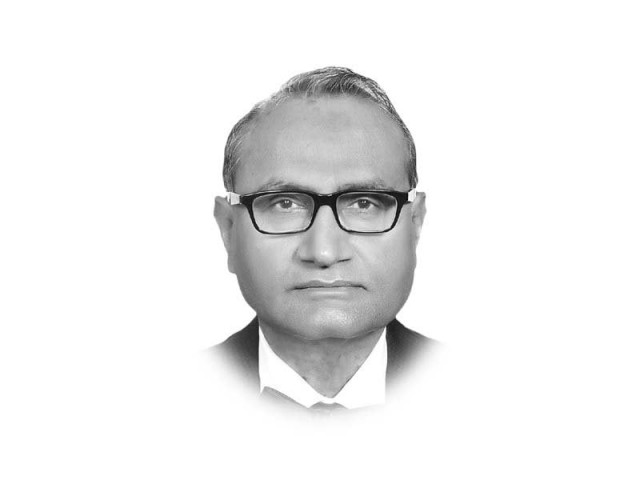The reality of fastest growth in K-P
The last Labour Force Survey relates to 2014-15 and the Household Integrated Survey to 2015-16

pervez.tahir@tribune.com.pk
Whatever the sources of growth, the main point of the book is that the K-P growth was higher than all other provinces in the past 15 years. In the interview, the Khan could not hide his glee while pointing out that Dr Pasha’s wife is finance minister of the competition, Punjab. During the past four years, the book shows Punjab’s growth at 4.6 per cent compared to K-P’s 5.1 per cent. At the launch of “The Punjab Economic Report 2017” in December last year, “Senior Economist and Consultant Dr. Hafiz A. Pasha highlighted that Punjab was on track to achieving a growth rate of six per cent by the end of the year which would be the highest growth rate in eleven years”, (Business Recorder). The Punjab Report includes Dr Pasha as part of the core team. It shows “a growth rate of just over 5 per cent” for 2015-16. If we compare GDP growth per capita, based on the GDP estimates from the book and the latest population figures, Punjab’s 2.5 per cent is ahead of K-P’s 2.1 per cent.
The last Labour Force Survey relates to 2014-15 and the Household Integrated Survey to 2015-16. In the absence of these important sources of information, the last two years in the book could only be projected, not estimated. This is also why a recent study prepared at the Lahore Chamber of Commerce and Industry stopped at 2014-15. The starting year was chosen as 2010-11to capture the impact of devolution under the 18th amendment and the 7th NFC that fundamentally changed the provincial economies. The study estimated Punjab’s growth rate at 5 per cent per annum. Projecting it into 2016-17 will yield no less.
Let it be clear that the estimates of provincial GDPs are a completely private enterprise. All studies use the official national GDP estimates as the starting point, divide it into provincial shares under a certain set of assumptions for different sectors and come out with growth rates for the period covered. Different studies thus have different results.
Published in The Express Tribune, February 23rd, 2018.















COMMENTS
Comments are moderated and generally will be posted if they are on-topic and not abusive.
For more information, please see our Comments FAQ